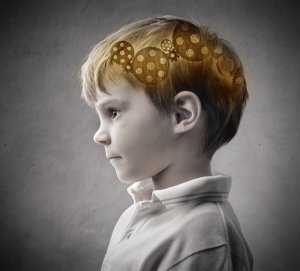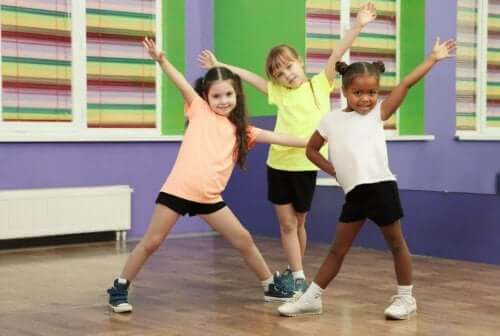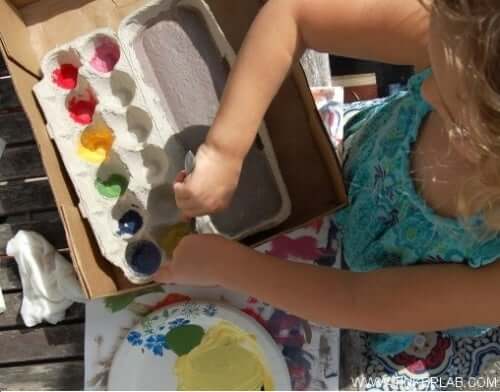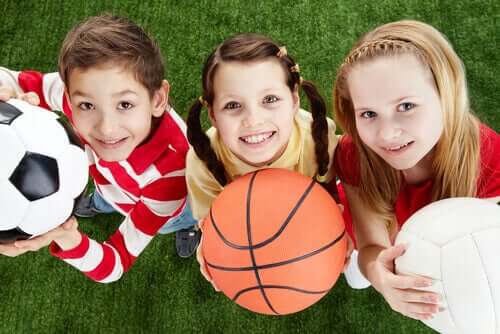12 Ways to Stimulate Your Child's Brain Health

What do we mean when we talk about brain health? Well, it’s simply helping your child to achieve emotional and developmental stages appropriate for their age. For this, it’s important to stimulate your child’s brain health.
“The experiences and stimulus that the brain receives in the first stages of life determine the formation of biological pathways that not only influence learning and behavior, but also your general health for your whole life,” Vladimir Muñoz, pediatrician from the National University.
Based on the above information, we can infer that good brain health is essential for your kid to learn social skills and respond properly to schoolwork requirements. Therefore, in this article we’ll present some ideas to stimulate your child’s brain health.
How to stimulate your child’s brain health

To stimulate the brain, we recommend doing “neurobics”, also known as brain aerobics or brain exercise. Basically, it’s a set of exercises that allows you to work both sides of your brain through both physical and mental activities.
As you’ll see below, we recommend physical and mental exercises that promote the creation of neural connections in the brain.
1. Draw in parallel
Ask your child to take two pencils, one in each hand. Put a large sheet of paper, or two sheets if you don’t have one large one, in front of him. Now it’s time to get to work: the idea is that your child should draw at the same time with both hands.
He should try different movements: up and down, circular, etc. This simple (and fun) exercise promotes fine motor skills and writing.
2. Cross crawl
Let’s pretend to be babies for a while, but cross crawl! The goal of this game is to improve coordination and activate the brain through vision and kinesthetic learning.
To play this game, your child has to move their opposite arm and leg at the same time to move forward, crawling like a baby. Once your child has the rhythm, then you can try variations including the other senses. For example, playing a song to move forward and pausing it when he should stop.
3. Memory exercises

Memory games are very fun to play as a family, and they also help kids to work on areas of thought that they don’t often practice.
You might be interested in: The 5 Best Memory Exercises
4. Puzzles
Doing puzzles means that children have to create a complete picture out of little pieces, promoting logic and concentration skills. Keep increasing the number of pieces as your kid improves, remembering that the ages recommended by the toy manufacturer are just suggestions.
5. Sudoku
Older children can do sudoku puzzles, with help at first. These exercises are excellent for promoting concentration, logical thinking, and attention.
6. Painting

Read a book to your child and afterwards ask them to paint or draw a picture about what you read. This way, you’ll help him work on his creativity, memory, reading comprehension, and expressing emotions.
7. Musical activities
Learning to play an instrument is a great activity for stimulating your child’s brain health. For example, playing the piano requires knowing what notes he’s reading, deciphering them, and translating them to hand motions, which have to be well-coordinated for the melody to sound good.
Read also: Motor Skill Development: Monthly Evaluation for Infants
8. Play with modeling clay
Modeling clay is an excellent option to stimulate fine motor skills, while also working hand-eye coordination. You can play with your kid to make all sorts of animals, and even relate the game to a story you’ve read to also work on reading comprehension and acting out the story.
Other tips to achieve brain stimulation

Mental exercise isn’t the only way to stimulate your child’s brain health. In fact, it’s extremely important that you:
- Talk with your kids, even when they are just born: exposing your child to language from a young age helps them to develop comprehension skills while also internalizing their native language and its cultural components.
- Avoid exposing them to prolonged stress: it’s been shown that exposing children to prolonged periods of stress can affect their cognitive development.
- Read to your children: just like talking to them, reading out loud is a fundamental activity to stimulate social skills and language development.
- Look at your children: visual contact helps them develop emotional relationships and learn social conduct.
- Hug your kids: physical contact is essential for social and emotional development.
- Promote a love of sports in your kids: open-air activities help your kids to work on their emotions, motor skills, and social skills.
If you want to stimulate your child’s brain health, talk with a specialist. Surely they’ll be able to recommend other options to work on your little one’s mental abilities.
All cited sources were thoroughly reviewed by our team to ensure their quality, reliability, currency, and validity. The bibliography of this article was considered reliable and of academic or scientific accuracy.
- Riofrío Archuleta, M. C. (2013). El uso de gimnasia cerebral como estrategia de movimiento en el aula para mejorar la atención y concentración en clases de niños de tres años Un estudio de caso (Bachelor’s thesis, Quito, 2013). http://repositorio.usfq.edu.ec/handle/23000/2196
- MERCHÁN, A. L. H. (2014). El arte infantil como herramienta pedagógica de motricidad fina en niños y niñas de cinco años(Doctoral dissertation, UNIVERSIDAD DEL TOLIMA). https://core.ac.uk/reader/51068290
- VEGA, T., & MARIBEL, J. (2017). MEJORAR EL APRENDIZAJE A TRAVÉS DE LA GIMNASIA CEREBRAL EN NIÑOS Y NIÑAS DE 4 AÑOS DE EDAD. GUÍA DE ACTIVIDADES PARA LA MEMORIA, DIRIGIDO A DOCENTES DEL CENTRO INFANTIL” MAMÁ YOLI”, UBICADO EN COOPERATIVA PABLO ARTURO SUÁREZ, SECTOR ATUCUCHO, DISTRITO METROPOLITANO DE QUITO, PERÍODO ACADÉMICO 2017 (Bachelor’s thesis). https://dspace.cordillera.edu.ec/handle/123456789/3142
- Villavicencio Becerra, G. (2018). Los Juegos De Rompecabezas Y Su Influencia En El desarrollo Del Razonamiento Lógico De Los estudiantes Del Nivel Primario, De La Institución educativa N° 16104 De San Francisco, Colasay, Jaén. http://repositorio.ucv.edu.pe/handle/20.500.12692/33363
- Soria-Urios, G., Duque, P., & García-Moreno, J. M. (2011). Música y cerebro (II): evidencias cerebrales del entrenamiento musical. Neurología, 53(12), 739-746. https://www.researchgate.net/publication/331129295_Musica_y_cerebro_II_evidencias_cerebrales_del_entrenamiento_musical
This text is provided for informational purposes only and does not replace consultation with a professional. If in doubt, consult your specialist.








